Brexit has been the single biggest structural issue facing the EU in its history - until recent weeks.
Despite stumbles along the way, the EU moved from a common market of six members to a single market of 28 members before the UK decided to leave.
Along the way, there were stumbles, such as Ireland rejecting the Nice Treaty, but, eventually, these were resolved and the institutions were strengthened.
When the UK, one of the three biggest members, decided to leave, it was a major blow that cast doubt about the overall strength of the structure.
Resolve
This was answered by resolve on the part of the 27 to stick together almost in an act of defiance and at least partly explains the robust stand taken by the EU against the UK in the withdrawal negotiations.
As these drifted into years, even the most Eurosceptic of members in the EU27 no longer had the appetite for the hassle of withdrawal.
Global events such as the pandemic, climate change and wars all presented challenges, but the EU always found a way to find a balance between the interests of member states.
Even war on its borders was approached with great solidarity of purpose in support of the invaded Ukraine, with the door thrown open to its people and commerce.
However, after 14 months of war, it is the commercial consequences of the war more than accommodating the people fleeing the war zone that has the potential to put the EU under the greatest strain that it has experienced to date.
Some rules more important than others
There is nothing new in a member state being found guilty of breaching EU rules and being punished with heavy fines.
Ireland has been on the receiving end of these, particularly for delay in compliance with water quality rules, but while they are costly, they are generally treated much as individuals would treat a speeding fine or a parking ticket.
The EU decision to lift all remaining tariffs on Ukrainian produce entering the EU in the aftermath of the Russian invasion was accepted with little protest.
With fuel, feed and energy prices coming off their peak, global grain prices came under pressure
The fact that prices of commodities surged after the invasion meant that there were no negative consequences to the EU market being opened.
Fast forward a year and with fuel, feed and energy prices coming off their peak, global grain prices came under pressure.
This meant that Ukrainian grain that was easily absorbed on to the market this time last year when the world feared hunger in the absence of Ukrainian grain was now a cause of over supply in its neighbouring countries.
The roll-over of the tariff-free trade agreement for a second year facilitated continuation of this trade and as global markets were less attractive than the EU, unsurprisingly much of this grain moved into the EU trade, as opposed to transiting through the EU into wider global markets.
Farmer protests
What shakes the EU more than the farmer protests is the fact that three member states - Poland, Hungary and Slovakia - have openly defied the most basic principle of EU membership, in that they closed their borders to Ukrainian grain.
This is more than failure to comply with a water quality directive - this is a fundamental breach of the most basic rule of the single market where Brussels - and Brussels alone - decides what enters the EU market.
What happens now?
The fact that Poland has relented to allow Ukrainian grain transit through may be a short-term solution. Similarly, while unlikely, a peace deal with Russia would enable the journey back to normal begin.
However, if the war continues, then so will the problem for the EU managing its ambition to support Ukraine.
When three member states that were among the last to join openly defy the most fundamental of EU policies, then there is risk of a structural problem.
Losing one member - the UK - could be considered unfortunate; to lose three more would be careless, to paraphrase the Oscar Wilde quote.
However, the EU is in a difficult position and while sanctions may be attractive, the reality is that they are unlikely to provoke a positive response.
Compensation
It actually may be in the form of an enhanced compensation fund for farmers that brings the best chance of success.
The EU has now announced a further tranche of money - €100m to assist these countries cope with Ukrainian product.
This may appear to be rewarding bad behaviour, but the reality is that keeping members on board is essential to maintain the structure of the EU itself.
This problem also provides a taste of what would lie ahead in the event of Ukraine being accepted as a full member of the EU.
Just as the Brexit problem seems to being close to resolution, trouble is brewing in the east.
Read more
Ukrainian grain blocked by EU neighbours
Talks held as more countries may ban Ukrainian grain
Bringing Ukraine into EU won’t be straightforward
Brexit has been the single biggest structural issue facing the EU in its history - until recent weeks.
Despite stumbles along the way, the EU moved from a common market of six members to a single market of 28 members before the UK decided to leave.
Along the way, there were stumbles, such as Ireland rejecting the Nice Treaty, but, eventually, these were resolved and the institutions were strengthened.
When the UK, one of the three biggest members, decided to leave, it was a major blow that cast doubt about the overall strength of the structure.
Resolve
This was answered by resolve on the part of the 27 to stick together almost in an act of defiance and at least partly explains the robust stand taken by the EU against the UK in the withdrawal negotiations.
As these drifted into years, even the most Eurosceptic of members in the EU27 no longer had the appetite for the hassle of withdrawal.
Global events such as the pandemic, climate change and wars all presented challenges, but the EU always found a way to find a balance between the interests of member states.
Even war on its borders was approached with great solidarity of purpose in support of the invaded Ukraine, with the door thrown open to its people and commerce.
However, after 14 months of war, it is the commercial consequences of the war more than accommodating the people fleeing the war zone that has the potential to put the EU under the greatest strain that it has experienced to date.
Some rules more important than others
There is nothing new in a member state being found guilty of breaching EU rules and being punished with heavy fines.
Ireland has been on the receiving end of these, particularly for delay in compliance with water quality rules, but while they are costly, they are generally treated much as individuals would treat a speeding fine or a parking ticket.
The EU decision to lift all remaining tariffs on Ukrainian produce entering the EU in the aftermath of the Russian invasion was accepted with little protest.
With fuel, feed and energy prices coming off their peak, global grain prices came under pressure
The fact that prices of commodities surged after the invasion meant that there were no negative consequences to the EU market being opened.
Fast forward a year and with fuel, feed and energy prices coming off their peak, global grain prices came under pressure.
This meant that Ukrainian grain that was easily absorbed on to the market this time last year when the world feared hunger in the absence of Ukrainian grain was now a cause of over supply in its neighbouring countries.
The roll-over of the tariff-free trade agreement for a second year facilitated continuation of this trade and as global markets were less attractive than the EU, unsurprisingly much of this grain moved into the EU trade, as opposed to transiting through the EU into wider global markets.
Farmer protests
What shakes the EU more than the farmer protests is the fact that three member states - Poland, Hungary and Slovakia - have openly defied the most basic principle of EU membership, in that they closed their borders to Ukrainian grain.
This is more than failure to comply with a water quality directive - this is a fundamental breach of the most basic rule of the single market where Brussels - and Brussels alone - decides what enters the EU market.
What happens now?
The fact that Poland has relented to allow Ukrainian grain transit through may be a short-term solution. Similarly, while unlikely, a peace deal with Russia would enable the journey back to normal begin.
However, if the war continues, then so will the problem for the EU managing its ambition to support Ukraine.
When three member states that were among the last to join openly defy the most fundamental of EU policies, then there is risk of a structural problem.
Losing one member - the UK - could be considered unfortunate; to lose three more would be careless, to paraphrase the Oscar Wilde quote.
However, the EU is in a difficult position and while sanctions may be attractive, the reality is that they are unlikely to provoke a positive response.
Compensation
It actually may be in the form of an enhanced compensation fund for farmers that brings the best chance of success.
The EU has now announced a further tranche of money - €100m to assist these countries cope with Ukrainian product.
This may appear to be rewarding bad behaviour, but the reality is that keeping members on board is essential to maintain the structure of the EU itself.
This problem also provides a taste of what would lie ahead in the event of Ukraine being accepted as a full member of the EU.
Just as the Brexit problem seems to being close to resolution, trouble is brewing in the east.
Read more
Ukrainian grain blocked by EU neighbours
Talks held as more countries may ban Ukrainian grain
Bringing Ukraine into EU won’t be straightforward



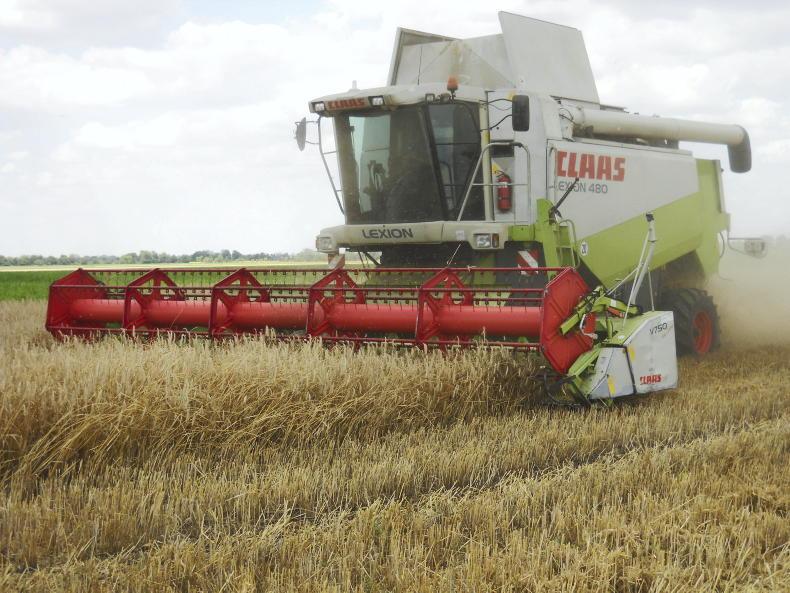
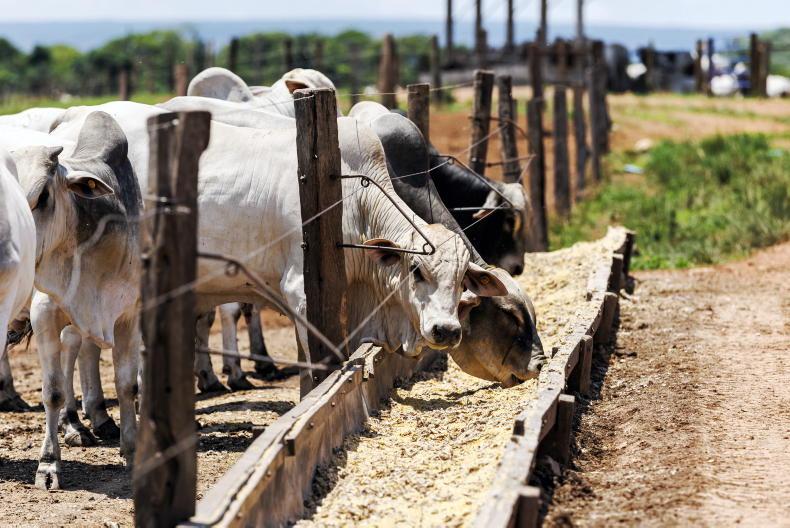
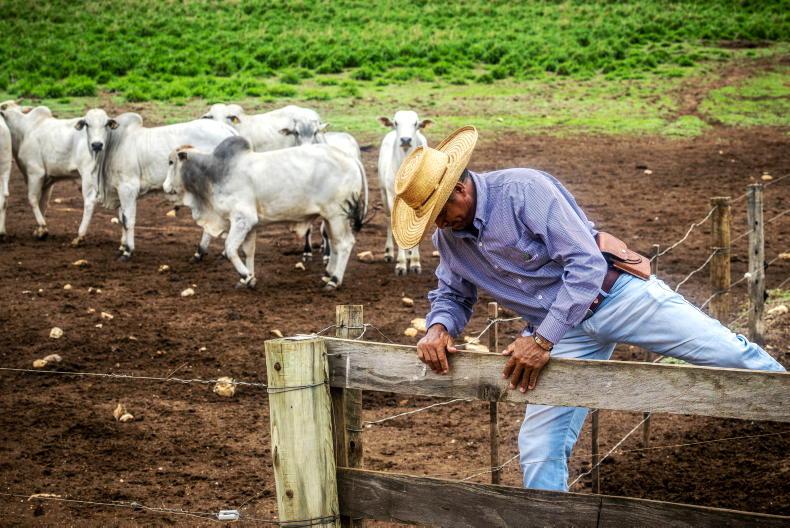
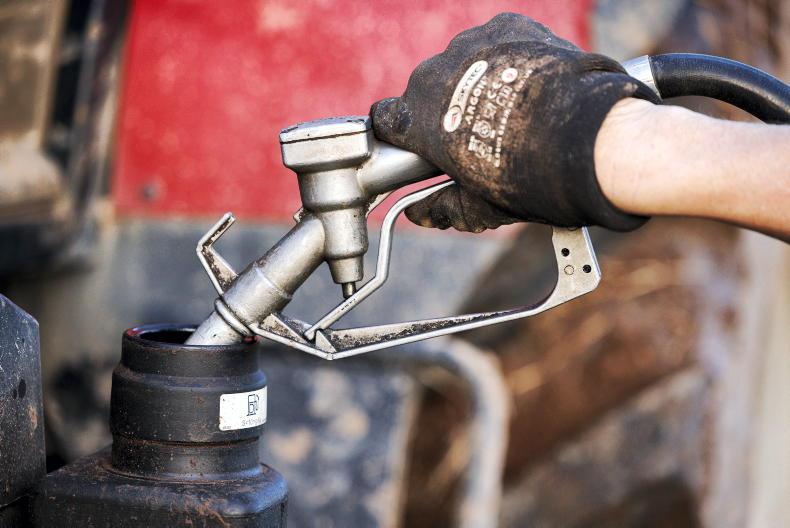
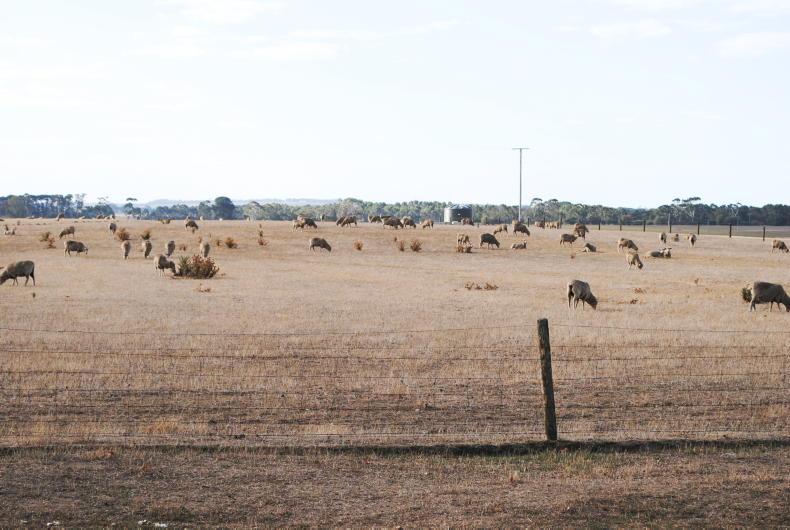
SHARING OPTIONS